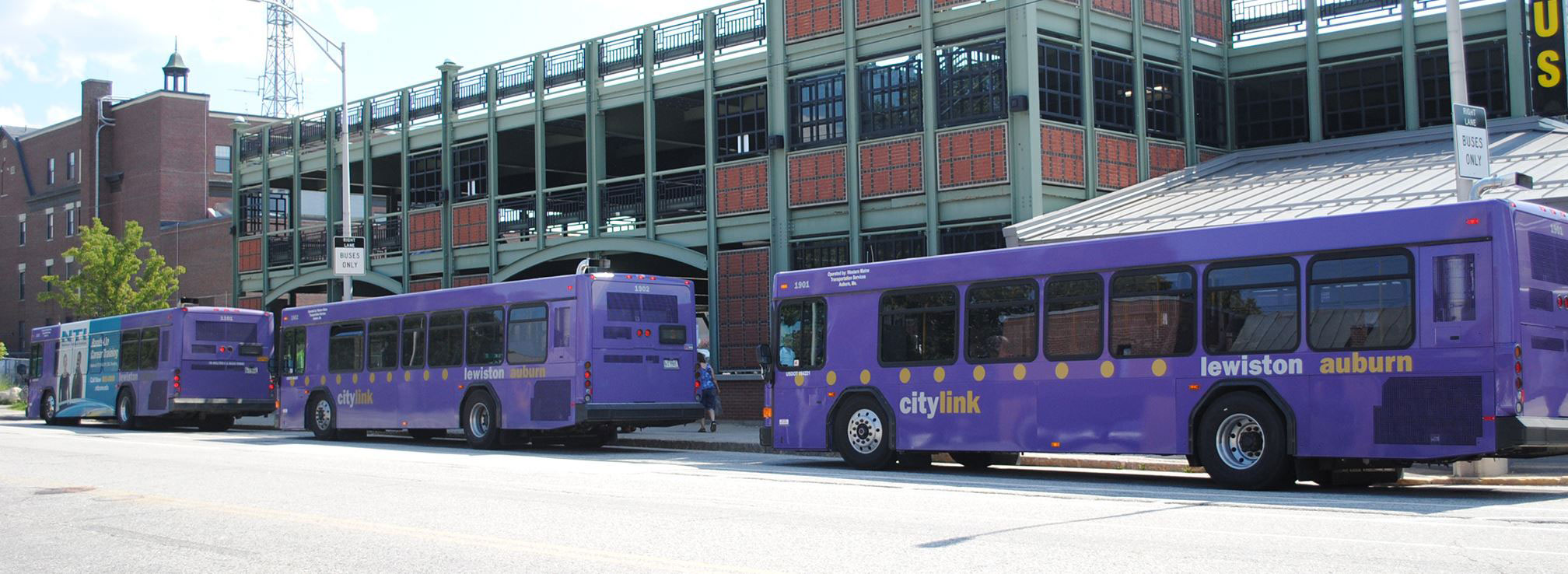Maine’s recently released Climate Action Plan, Maine Won’t Wait, is an exciting step forward in the state’s efforts to strengthen our economy by decreasing greenhouse gas emissions 45% by 2030 and at least 80% by 2050. One of the most important parts of the Climate Action Plan focuses on solutions for reducing pollution from cars and trucks, which account for the largest and fastest-growing source of greenhouse gas emissions in Maine.
As we’ve noted before, curbing transportation-related pollution can provide enormous benefits for Maine people — but only if we do it right. To achieve a future that gives Mainers the freedom they deserve, we must pursue projects and programs that reduce vehicle miles and accelerate the transition to electric cars and trucks by 1) expanding the capacity, geography, and frequency of public transit across the state; 2) expanding our network of safe public sidewalks and bikeways; 3) increasing electric vehicle infrastructure and purchases; and 4) encouraging development in and around existing downtown and village areas.
The reality is that we can’t achieve these promising outcomes with Maine’s current broken transportation funding system, so a critical step in building the modern, efficient transportation system Mainers deserve will be identifying sustainable long-term funding sources from regional initiatives and the federal government.

Lewiston-Auburn public buses. Photo courtesy AVCOG
For the past several years, a group of states in the Northeast, including Maine, have been discussing a promising solution that could inject hundreds of millions of dollars into Maine to provide people with healthier and more affordable options for getting around. Maine residents currently spend more on gas annually for our vehicles than nearly any other state in the nation. What if we could redirect some of those funds to invest in transportation systems that both reduce pollution and reduce our dependence on fossil fuels? That’s what the Transportation and Climate Initiative (TCI) would accomplish, using a cap-and-invest system to limit pollution from cars and trucks and provide much-needed funding to invest in Maine-based clean transportation programs and solutions.
TCI is modeled after the successful Regional Greenhouse Gas Initiative that curbs pollution from power plants and sends millions of dollars to Maine to support energy efficiency programs, like incentives for heat pumps and weatherization.
On Monday December 21, 2020, several of the participating states released a Memorandum of Understanding to begin developing a framework for how TCI will work. Though Maine remains actively involved in discussions, it hasn’t signed on to the agreement yet. As noted in Maine’s Climate Action Plan, the Transportation Working Group of the Maine Climate Council recommended that Maine continue to monitor TCI as it is developed, as well as other transportation-funding solutions.
The good news is that the majority of Mainers understand that investing in transportation solutions will strengthen our economy, help people lead healthier lives, and better connect our communities.
- A poll released in December 2020 from the Yale Program on Climate Change Communication and ClimateNexus shows that 56% of Maine voters support Governor Mills joining the regional transportation program proposed by TCI. This same poll showed voters support transportation investments as an integral part of our recovery from the pandemic.
- A poll released by the Natural Resources Council of Maine (NRCM) in early 2020 showed 81% of Maine voters support building a statewide bus network connecting cities and towns. A broad majority of voters showed similar support for other clean transportation solutions, including electric cars, safer paths for people biking and walking, and locating services closer together to reduce driving.
- Another poll released by the Maine Trails Coalition showed 86% of Mainers favor creating a statewide network of multi-use trails on unused rail corridors, if the trails could be converted back to railroad use if needed.
Some environmental justice organizations have rightfully noted that TCI must be structured to ensure that investments are made in underserved and overburdened communities. In response, the states working on designing TCI have developed proposals to ensure investments are made equitably and transparently. NRCM supports improvements to TCI to ensure that investments in transportation are equitable and address underserved and overburdened communities, including Maine’s rural communities.
As you might expect, special interests connected to the fossil fuel industry are spreading fear and misinformation about TCI. While these groups are trying to disrupt efforts to reduce our dependence on fossil fuels, they refuse to articulate any alternative vision or option for helping Mainers lead better and healthier lives. They also conveniently forget to mention that TCI would ensure that money being spent in Maine stays in Maine to be reinvested in our communities rather than benefiting large international oil and gas companies.
Mainers support investing in a broader range of transportation options, from electric cars and trucks to better buses and safer biking and walking paths because doing so will make a positive difference for our communities and the people of Maine. From Lewiston to Presque Isle our struggling public transit systems need more support to help residents connect to essential services.
NRCM encourages Maine government agencies to remain actively involved in the development of TCI so that we can take advantage of this promising funding source to create a better future for Maine and ensure the program is tailored to the unique needs of residents in our rural state.
—Sue Ely, NRCM Climate & Clean Energy Policy Advocate and Staff Attorney











Leave a Reply